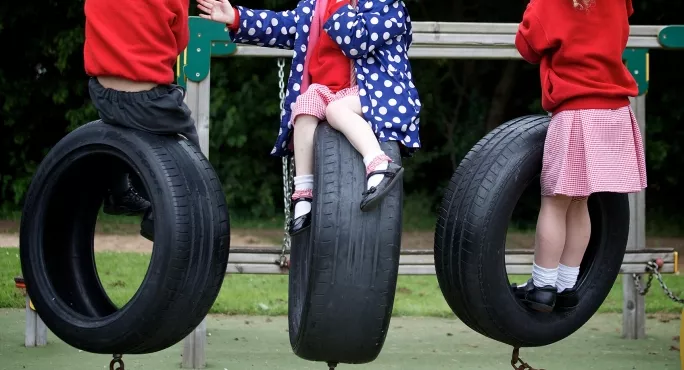- Home
- Analysis
- Early Years
- What the early years system in Scotland needs
What the early years system in Scotland needs

Scotland has an early years system similar to other English-speaking countries, and is what I call a “childcare-dominated split system”. It is divided between “childcare services” and schools, with the former providing for the majority of children. This system is deeply flawed.
Why is it deeply flawed? Because services are fragmented, incoherent and socially divisive. The split embeds an artificial distinction between care and education, and undermines children’s “right to education… beginning at birth” (UN Committee on the Rights of the Child). The workforce for childcare services, unlike the schools’ workforce, is underqualified and appallingly underpaid. The split leaves the sector (ending too early at five years old) weak and at risk of schoolification - of being taken over “in a colonising manner” by primary education.
Add to this the low levels of public spending and high parental payments, plus a yawning gap between the early end of well-paid parenting leave and an entitlement to an early childhood place, and you have the recipe for a dysfunctional system. Add to this the relatively low levels of public spending in the Anglosphere (despite recent increases, actual or proposed, in Canada, Scotland and the USA) and high parental payments.
- Quick read: Four big issues facing the early years in Scotland
- Tes Scotland’s 10 questions with... Early years leader and researcher Lynn McNair
- OECD review: Why is the early years invisible?
- Nursery schools: Landmark policy all set after Covid delay
- Early years: Free early years education from age 1 promised
So, what can we do? Most countries have split systems, though schools (or kindergartens) predominate in most. But adopting this formula doesn’t deal with the basic problem - the system remains split. Another way is needed: a fully integrated and public system of early childhood education (ECE) from birth to age 6, based on: an image of the rich child, born with a hundred languages and a citizen with rights; children’s rights, including education from birth; and ECE as a public good, not a private commodity, recognised as a “universal basic service”.
How to transform our early years system
What would this mean in practice?
- Integrated access: ECE as an entitlement for all children from birth to age 6, plus 12 months of well-paid parental leave - closing the yawning gap.
- Integrated provision: ECE in multi-purpose and community-based provision for children from birth to age 6 and their families, such as children’s centres, provided by a mix of local authorities and non-profit organisations.
- Integrated workforce: based on a graduate ECE (0-6) worker (a teacher or social pedagogue) having parity with schoolteachers.
- integrated funding: provision that is funded directly (not through subsidies to parents) and free to attend for a core period.
This system would mean the end of endless talk about “childcare” and also separate “childcare services”. The ECE system would be an integral part of the education system, and education is at the heart of the system because education is a child’s right from birth.
But the ideal early years system is far more even than that. It provides support for parents while taking well-paid parenting leave at home in a child’s first year. It serves many other purposes, including supporting employed parents. And it recognises the importance of care - but for all children and adults, and with care understood as a relational ethic, not as a commodity for sale to some parents.
Is this doable? Yes, because it’s been done already. The system can be found in the Nordic countries, with Sweden proving a good example. New Zealand, among Anglophone countries, has also made considerable strides, not least in creating an integrated workforce of graduate early years teachers.
Of course, it would take time and meet opposition. So the starting point (apart from the Scottish government gaining control of parenting leave policy and that part of early years funding operated by the UK government - for example, tax-free childcare, the childcare element of universal credit and working tax credit) would be determining what Scotland wants and the steps needed to achieve transformation - an open dialogue drawing in friends from the UK and further afield.
Transformation must, of course, consider other matters, including values and pedagogy - but getting the system right will create the conditions for getting everything else right.
Professor Peter Moss, of University College London, will be appearing at the Royal Society of Edinburgh’s Early Years Conference on 2 March 2022. The conference is online and free to attend - more information and booking details are available here.
You need a Tes subscription to read this article
Subscribe now to read this article and get other subscriber-only content:
- Unlimited access to all Tes magazine content
- Exclusive subscriber-only stories
- Award-winning email newsletters
Already a subscriber? Log in
You need a subscription to read this article
Subscribe now to read this article and get other subscriber-only content, including:
- Unlimited access to all Tes magazine content
- Exclusive subscriber-only stories
- Award-winning email newsletters
topics in this article



